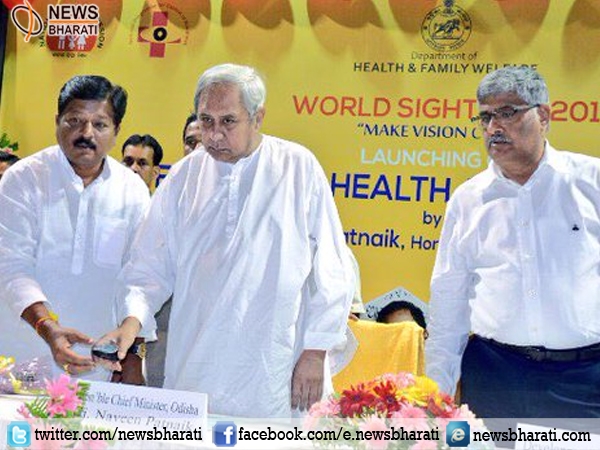For the first time in India, with a cost of Rs.600 Cr Odisha launched Free Universal Eye Care Programme
Bhubaneswar, October 13: With an aim to minimize the blindness and cure vision impairment, Chief Minister Naveen Patnaik launched a Free Universal Eye Care programme with an expenditure of Rs 600 Crore. Free Universal Eye Care Programme aims at minimizing the number of people with curable vision impairment in the state on the occasion of World Sight Day. CM Patnaik also launched a health web portal where people with eye problems can register.

Addressing the programme, CM Naveen said the initiative would go a long way in controlling curable blindness and added that an institutional mechanism has been made for screening and providing free treatment to all people with curable eye problems. Health Minister Pratap Kumar Jena said those who have lost vision due to cataract and diabetic retinopathy would be given free treatment and students would be accorded priority under the programme.
“Odisha is the first state in the country to have launched such a programme with an expenditure of Rs 600 Crore which will be borne by the State Government in the next five years”, said Naveen. The State Government will establish vision centres equipped with improvised eye care facilities initially at all the Community Health Centres (CHCs) and later on at Public Health Centres (PHCs) or even at sub-centre level to cover the entire population in the state.
Requisite trained manpower would be made available to make this programme a success, Naveen said. All cataract cases would get free operation facility and appropriate glasses, Patnaik said, adding that maximum number of people suffering from corneal blindness would regain vision through corneal transplant surgeries free of cost.
A massive screening programme would be undertaken to detect diabetic retinopathy and other serious eye problems, while patients would be provided free treatment at government hospitals. School students would be screened for refractive errors and other eye problems and they would be given spectacles free of cost in the school itself.